|
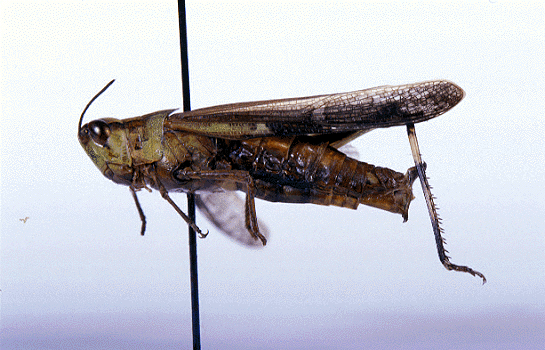 Identification of specimens Identification of specimens
The primary difficulty in ecological studies, where little information is available on the species assemblages and their taxonomy, is species identification. This site has compiled images of those species that have been successfully identified, either by using published identification keys, or through the efforts of Dr Rob Toms at the Transvaal Museum and Dr Dick Brown at the Locust Research Institute, Pretoria. It is hoped this site will expand as new specimens are processed and their names verified (Orthopteran species list). The main purpose for this information is to assist students and research assistants in the field by enabling easy access to the current species information about the study area. |
|
Who
We Are
- Dr Peter Dennis, Ecologist, Natural Heritage and Biodiversity Management, Macaulay Land Use Research Institute, Aberdeen, UK
- Miss Pearl Skepe, Masters student, Zoology and Entomology, University of Fort Hare, Eastern Cape, RSA
- Mr Dumile Ntlola, Masters student, Zoology and Entomology, University of Fort Hare, Eastern Cape, RSA
- Miss Alison Donald, Field Ecologist, Macaulay Land Use Research Institute, Aberdeen, UK
- Mr Martin Pareja, Field Ecologist, Macaulay Land Use Research Institute, Aberdeen, UK
- Dr Sam Waladde, Entomologist, Zoology and Entomology, University of Fort Hare, Eastern Cape, RSA
- Dr Rob Toms, Department of Invertebrates,
Transvaal Museum, Pretoria, RSA
- Dr Dick Brown, Locust Research Centre,
Plant Protection Institute, ARC Field Station, Pretoria, RSA
- Mr Brad Fike, Conservator, Sam Knott Game Reserve,
Eastern Cape, RSA
- Prof Jan Raats, NRF co-ordinator,
Head of Livestock and Pasture Science, University of Fort Hare, Eastern
Cape, RSA
- Dr Andrew Illius, RS co-ordinator,
Department of Cell, Animal and Population Biology, University of Edinburgh,
Scotland, UK
|
|
Global
Orthopteran Database
A comprehensive Global Orthopteran Database compiled in the United States is an excellent resource to assist in the provisional nomenclature of new specimens that have first been identified to genus. This should indicate some realistic possibilities of the species within the genus that have already been recorded from the same geographical location.
Further enquiries and comments about
the project can be made to info@eatcetera.com
|
|
|
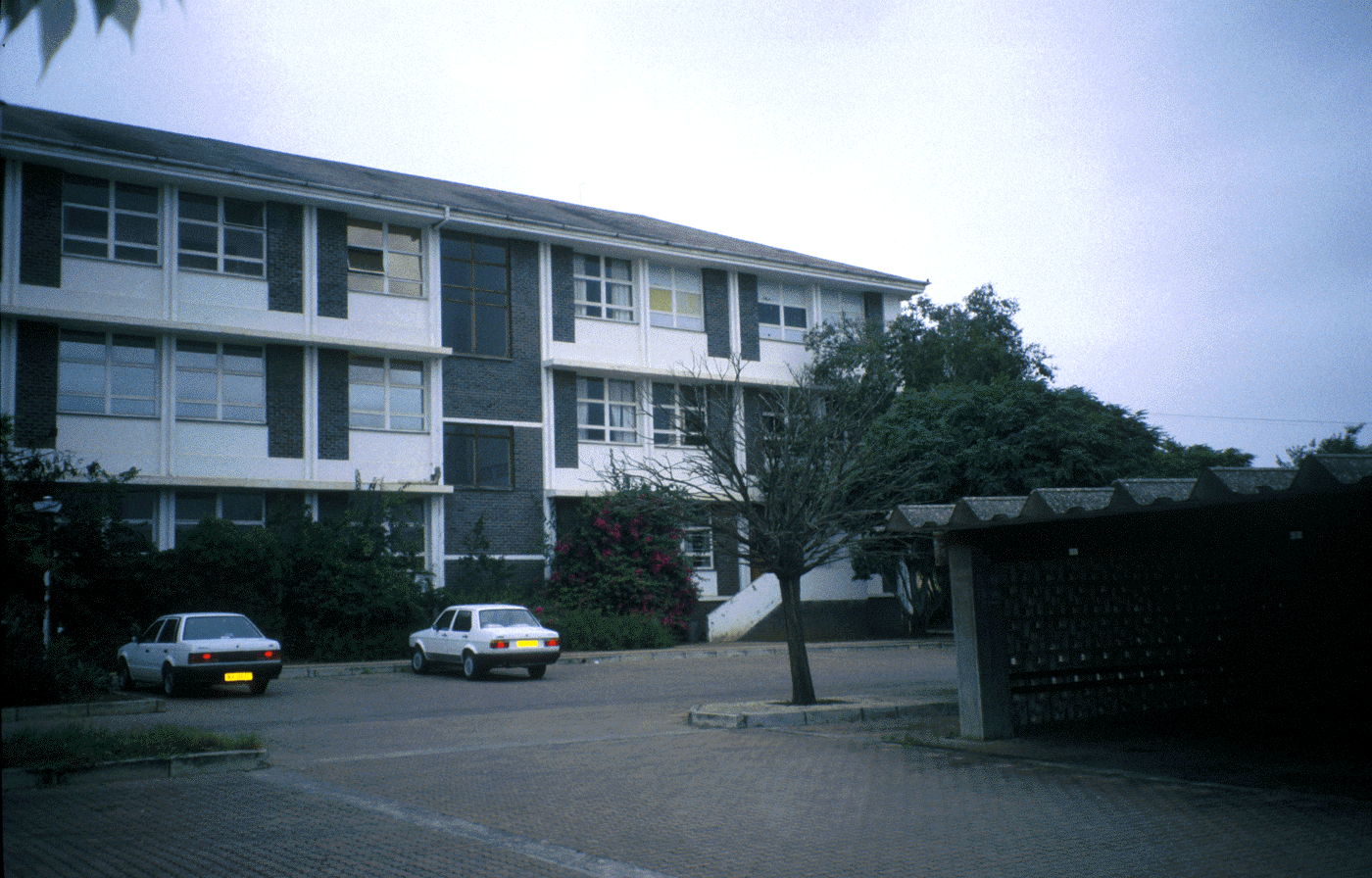 The project is sponsored by the United Kingdom Royal Society and the National Research Foundation of the Republic of South Africa. There has been the additional involvement of staff and postgraduate students from the Department of Entomology and Zoology at the University of Fort Hare to support the work that has begun to understand the environmental consequences of raising livestock and game on semi-arid savanna.
The project is sponsored by the United Kingdom Royal Society and the National Research Foundation of the Republic of South Africa. There has been the additional involvement of staff and postgraduate students from the Department of Entomology and Zoology at the University of Fort Hare to support the work that has begun to understand the environmental consequences of raising livestock and game on semi-arid savanna.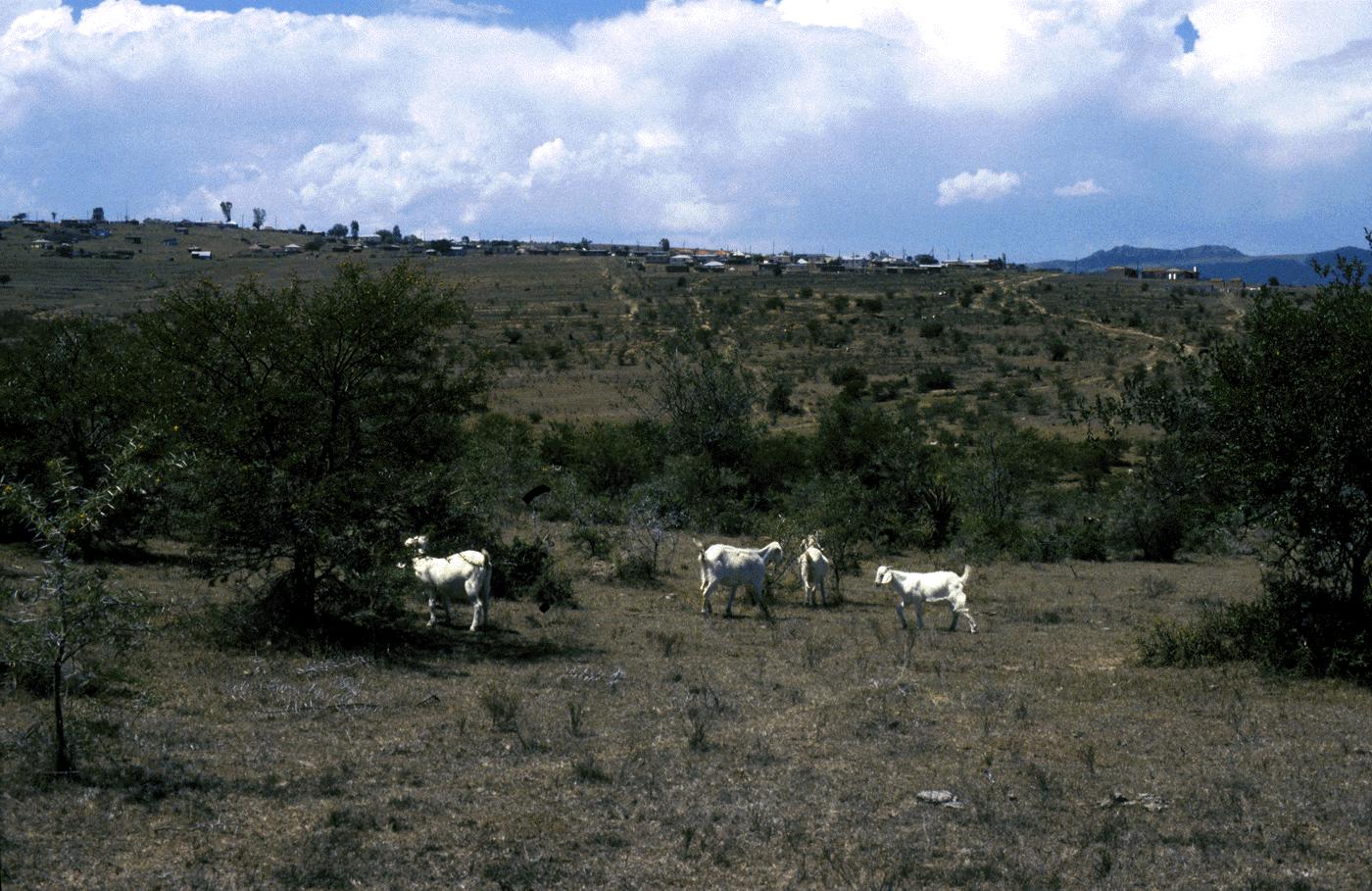 Researchers
are investigating the impact that cattle and goats, or game have on insect biodiversity in thornveld and bushveld savanna in the Eastern Cape.
Researchers
are investigating the impact that cattle and goats, or game have on insect biodiversity in thornveld and bushveld savanna in the Eastern Cape.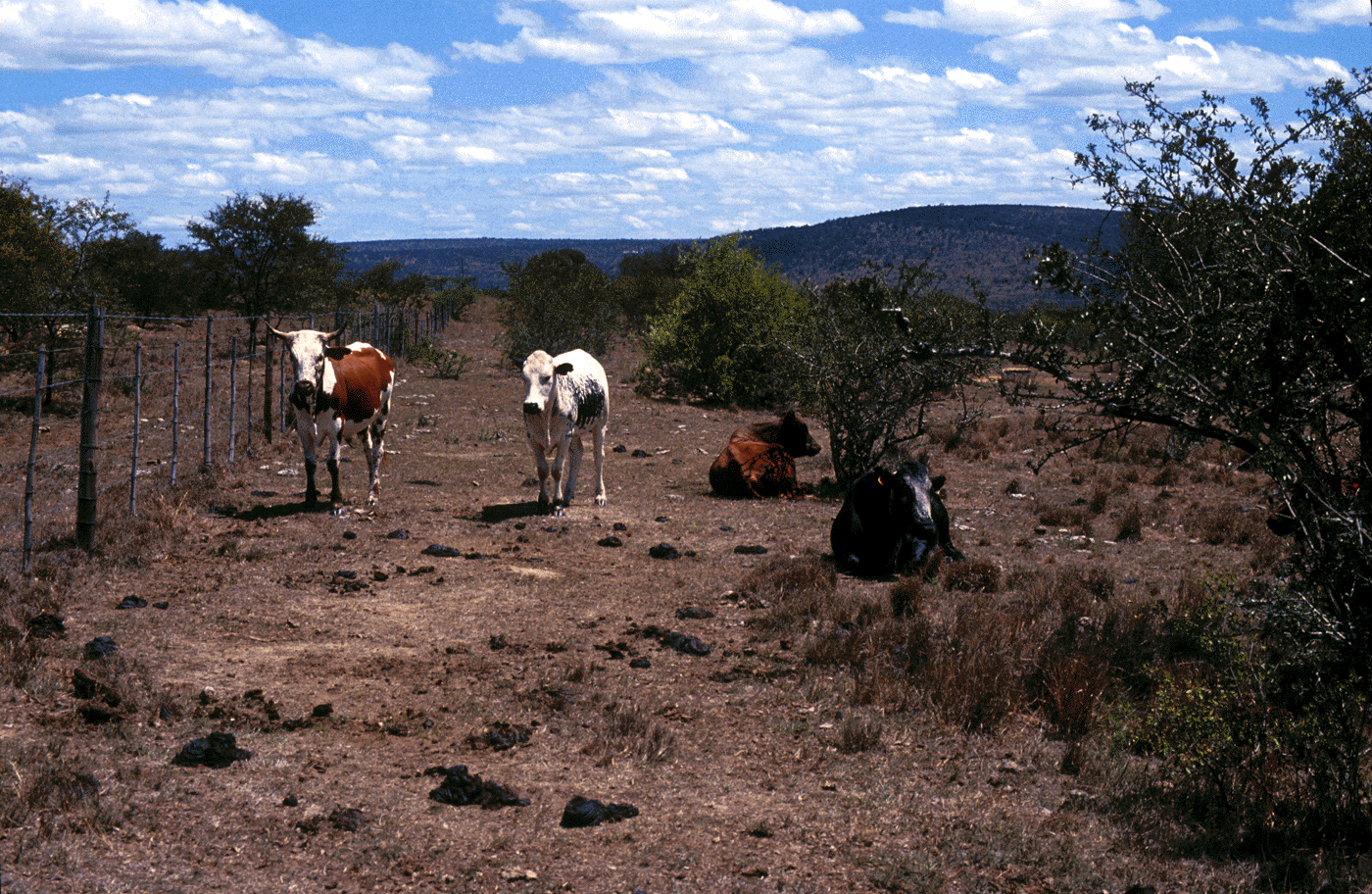 The agriculture of this area is characterised by extensive grazing systems but there has also been conversion of land to game management.
The agriculture of this area is characterised by extensive grazing systems but there has also been conversion of land to game management.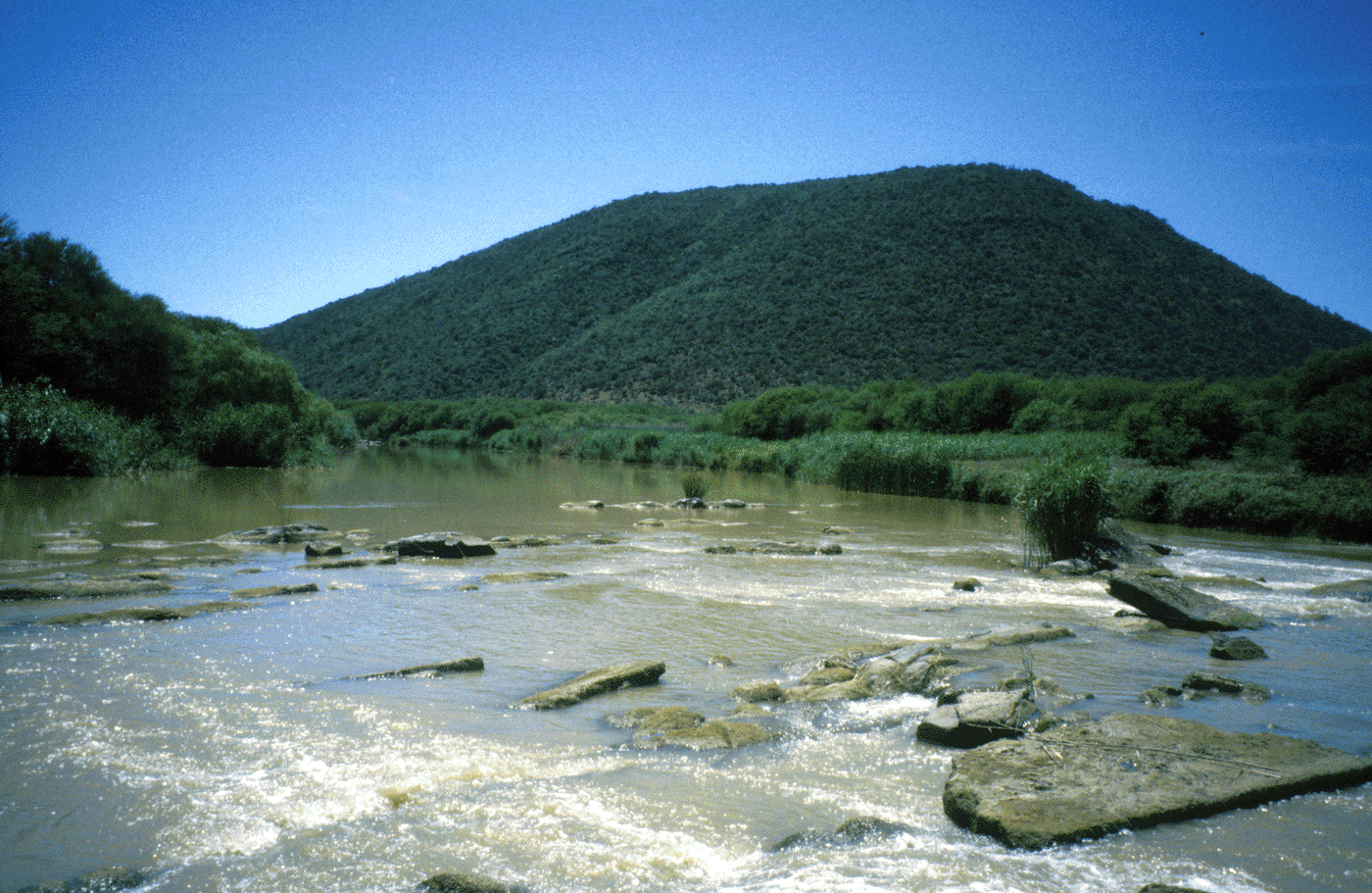 In 1999, research was extended to the Great Fish River Game Reserve complex where populations of several megaherbivore species, smaller antelope and warthogs are maintained.
In 1999, research was extended to the Great Fish River Game Reserve complex where populations of several megaherbivore species, smaller antelope and warthogs are maintained.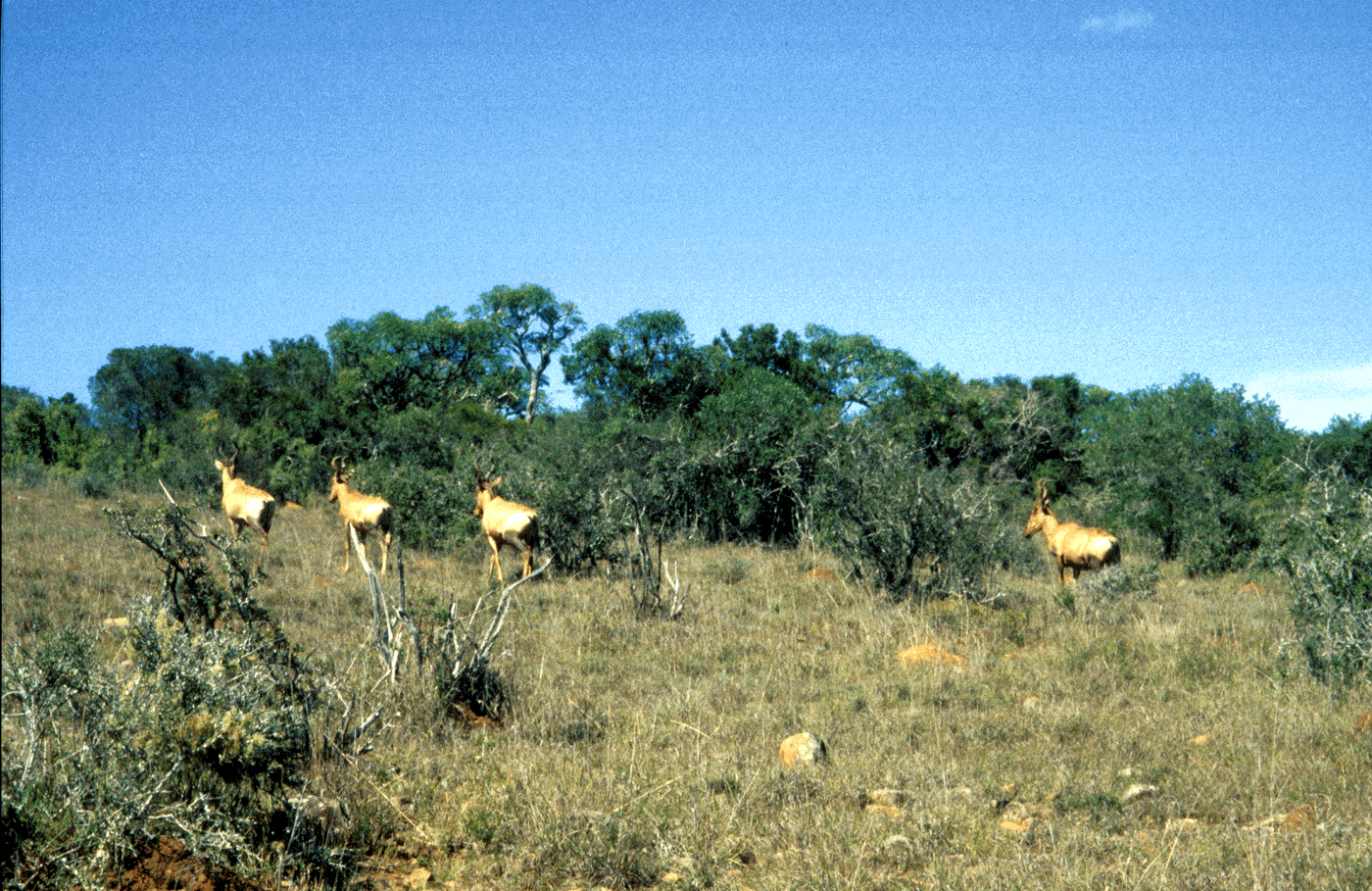 There is particular interest in the effects of large-herbivore browsing and grazing on grasshoppers and bush crickets (Orthoptera) since these species are particularly sensitive to habitat structure and the degree of disturbance by large herbivores.
There is particular interest in the effects of large-herbivore browsing and grazing on grasshoppers and bush crickets (Orthoptera) since these species are particularly sensitive to habitat structure and the degree of disturbance by large herbivores.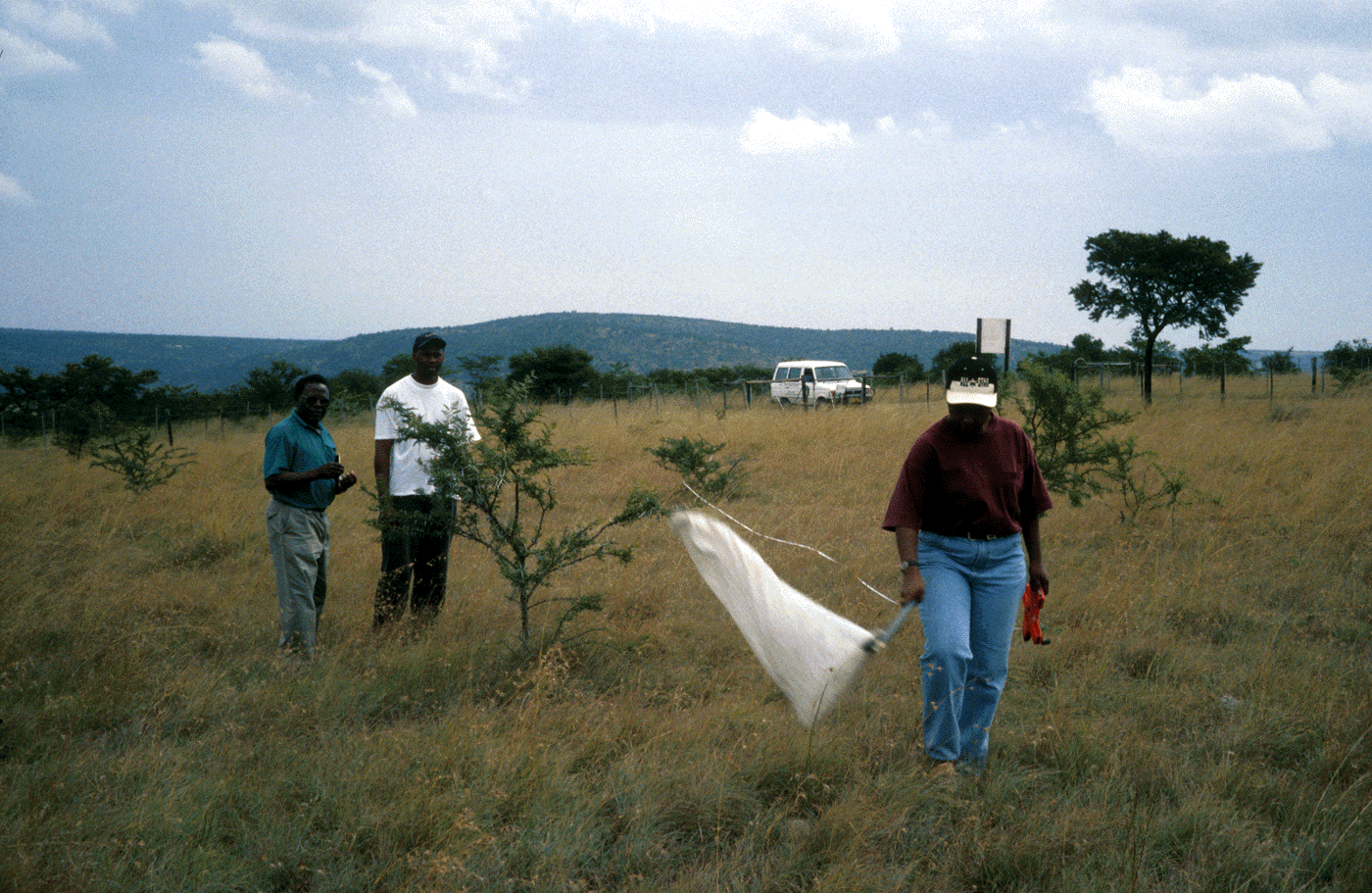 The species composition and relative abundance of grasshoppers were compared at a selection of representative sites using standardised methods. A series of transect walks were carried out in each area using a sweep-net or motorised suction-sampler.
The species composition and relative abundance of grasshoppers were compared at a selection of representative sites using standardised methods. A series of transect walks were carried out in each area using a sweep-net or motorised suction-sampler.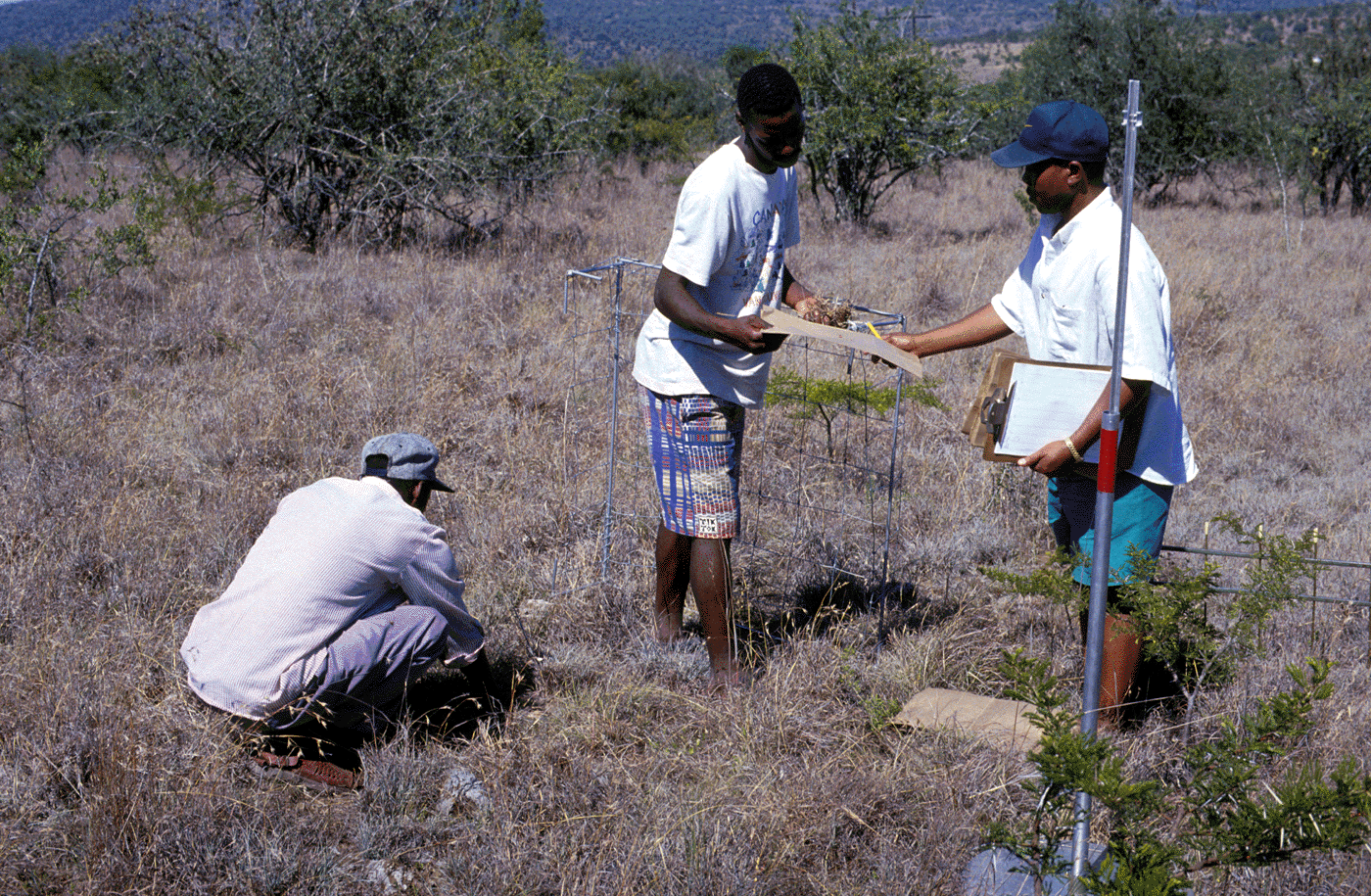 Vegetation height and botanical composition were recorded along the same transects or in the general vacinity of the samples to allow comparison with habitat structure. Additional assistance in the identification and sorting of Orthoptera has been provided by staff at the Transvaal Museum and ARC Plant Protection Institute, Locust Research Centre of Pretoria. The area has not been subject to systematic ecological survey and has great potential for the discovery of new species, possibly endemic to the region.
Vegetation height and botanical composition were recorded along the same transects or in the general vacinity of the samples to allow comparison with habitat structure. Additional assistance in the identification and sorting of Orthoptera has been provided by staff at the Transvaal Museum and ARC Plant Protection Institute, Locust Research Centre of Pretoria. The area has not been subject to systematic ecological survey and has great potential for the discovery of new species, possibly endemic to the region.


 Identification of specimens
Identification of specimens